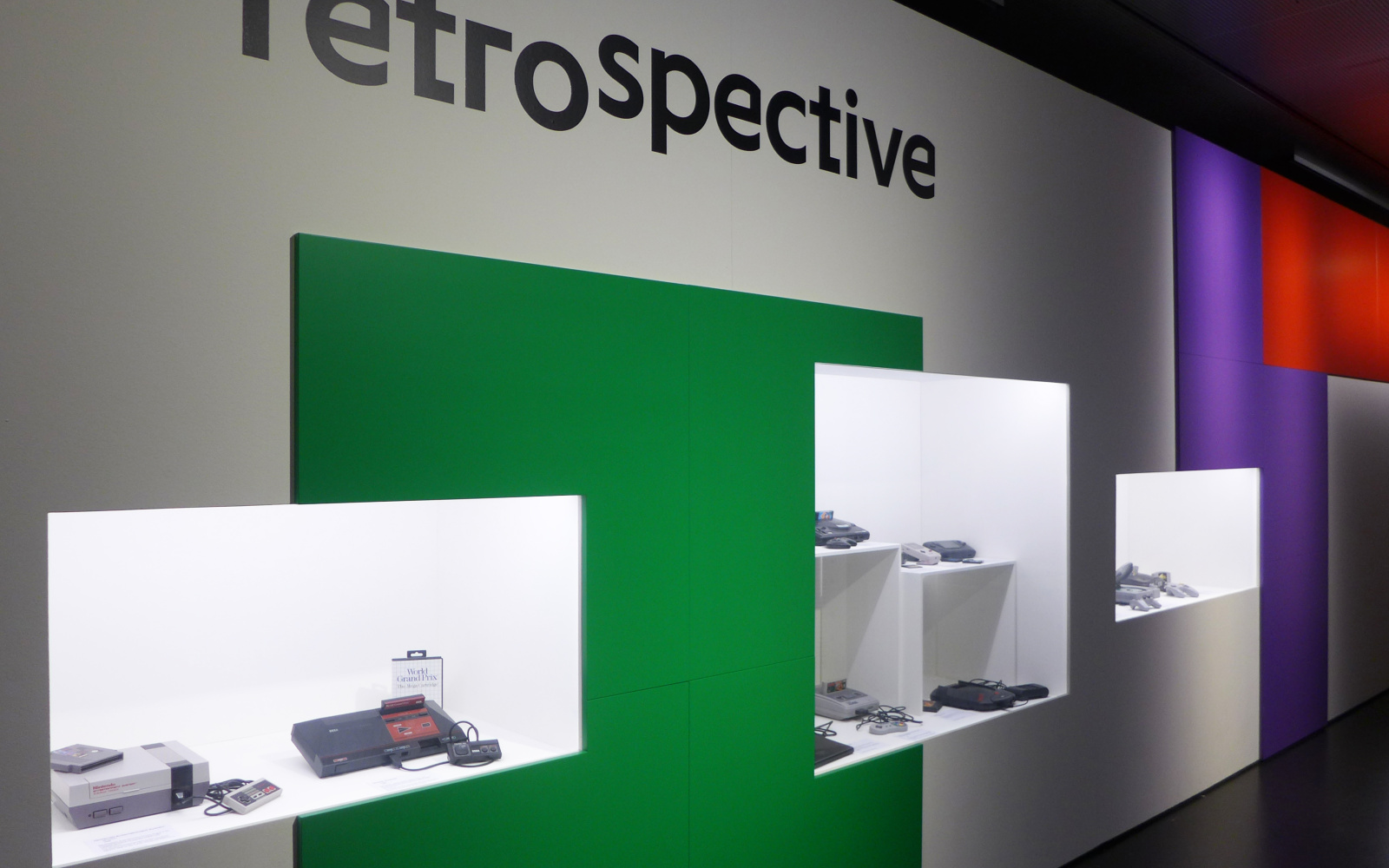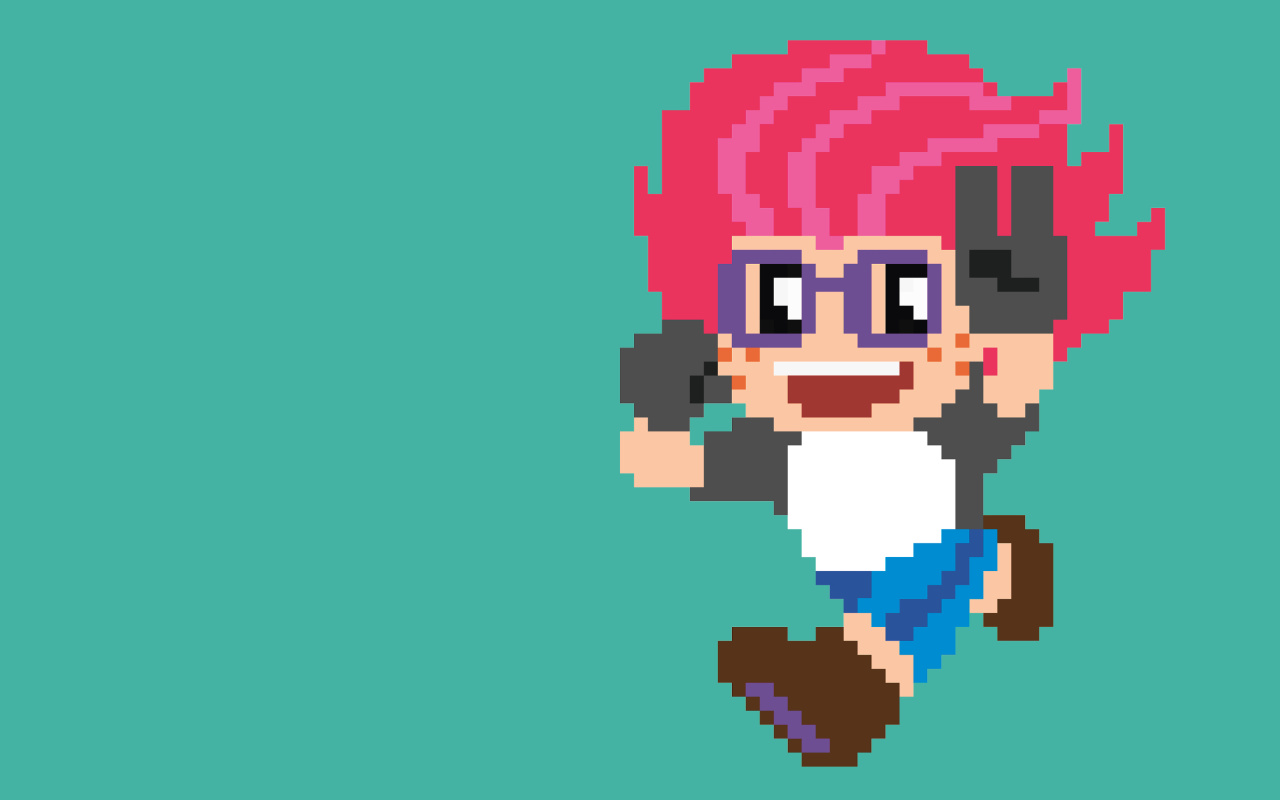retrospective
The development of game consoles since 1972
The »retrospective« section shows the technical development of game consoles since 1972.
A large part of the consoles is a friendly loan from Dipl.-Ing. Boris Jakubaschk. He works as a software developer in Karlsruhe. For more than 20 years he has been collecting historical computers in his spare time and documenting their history.
Game Consoles
-
»Odyssey«, 1972 by Magnavox, Ralph H. Baer
The Magnavox »Odyssey« was the first video game console ever released. The prototype was developed by Ralph H. Baer back in 1968.
-
»Hockey Pong C-121«, 1976 by Atari Inc.
»Hockey Pong« is one of many Pong consoles, which flooded the market in the 1970s.
-
»Las Vegas ES 2218«, 1977 by Philips
The »Las Vegas ES 2218« is a Pong-console with eight game modes. In contrast to the ES 2207 it is able to represent color.
-
»Travemünde ES 2207«, 1977 by Philips
The »Travermünde« is a Pong-console. It is not able to represent color and sound and was advertised as a game for the small purse.
-
»Video Computer System (VCS) / 2600«, 1977 by Atari Inc.
With about 30 million sold devices, the Atari VCS is the most successful game console of its time and shaped this generation.
-
»Videoplay«, 1977 by Saba
The »Videoplay« is a licensed replica of the Fairchild Channel F, the first console with changeable ROM cartridges.
-
»Intellivision«, 1979 by Mattel
The »Intellivision« is the first 16-bit console, including an online service. However, Mattel was not able to compete with Atari.
-
»Microvision Blockbuster«, 1979 by Milton Bradley
»Microvision« is the first handheld console with changeable game ROM cartridges.
-
»Game & Watch POPEYE«, 1980 by Nintendo
Nintendo's »Game & Watch« series served as a template for the Game Boy, which was launched in 1989.
-
»Bildschirmspiel 01«, 1980 by VEB Halbleiterwerken Frankfurt an der Oder
The »Bildschirmspiel 01« is the only console fo the GDR and a replica of an Pong console.
-
»Vectrex«, 1982 by General Consumer Electric
The »Vectrex« is a console with an integrated vector screen. The games where displayed with an overlay for the screen.
-
»Defender Tabletop«, 1982 by Entex
The LCD game is a simplified version of the arcade classic »Defender« (1981)
-
»Nintendo Entertainment System«, 1985 by Nintendo
The »Nintendo Entertainment System« is a 8-bit videogame console. It was initially released in Japan in 1983 as the Family Computer (Famicom).
-
»Master System«, 1986 by Sega
The »Master System« competed with the Nintendo Entertainment System. Despite better hardware it could not assert itself on the market.
-
»Mega Drive«, 1988 by Sega
The 16-bit console was famous for it’s mascot Sonic. The first gameI if the Sonic the Hedgehog series was released 1991.
-
»Lynx II«, 1989 by Atari Corperation
The Lynx system is the world's first handheld console with a color LCD screen. It was originally developed by Epyx under the name »Handy Game«.
-
»Game Boy«, 1989 by Nintendo
The »Game Boy« was the world's most successful console until the release of the »Nintendo DS« in 2004. It was sold bundled with the game Tetris.
-
»Game Gear«, 1990 by Sega
The handheld console was Sega's answer to the »Game Boy«. However, it was twice as expensive, a shorter battery life, and offered fewer games.
-
»Neo Geo AES«, 1990 by SNK
The hardware of the »Neo Geo AES« was extremly powerful and iis dentical to the arcade machines by SNK.
-
»Super Nintendo Entertainment System (SNES)«, 1990 by Nintendo
The »SNES« was Nintendo's answer to Sega's »Mega Drive«. It allowed for the display of 3D effects.
-
»Mega Drive II mit Mega-CD II«, 1991/1993 by SEGA
The »Mega CD-II« was an CD drive addon to the »Mega Drive II«.
-
»Jaguar«, 1993 by Atari Corperation
The »Jaguar« is the last console of the once famouse Atari company.
-
»Saturn«, 1994 by SEGA
The »Saturn« was a very powerful 32-bit console. However, the multicore architecture proved to be extremely difficult to code for.
-
»PlayStation«, 1994 by Sony
The PlayStation origins date back to 1988 to an originally a joint project between Nintendo and Sony.
-
»Nintendo 64«, 1996 by Nintendo
The »N64« is the last console with ROM cartridges as storage medium. The gamepad was formative for navigating in 3D games.
-
»Dreamcast«, 1998 by SEGA
The »Dreamcast« marked the beginning of the sixth console generation and the end of Sega as a console manufacturer.
-
»Playstation 2«, 2000 by Sony
With over 155 million units sold, »Playstation 2« is the best-selling video game console of all time.
-
»GameCube«, 2001 by Nintendo
»GameCube« runs a MiniDVD like format.It had more storage capacity than ROM cartridges and also worked as a physical copy protection.
-
»Xbox«, 2001 by Microsoft
The »Xbox« was Microsofts entry to the console market. In contrast to other consoles the »Xbox« was based on conventional PC hardware

